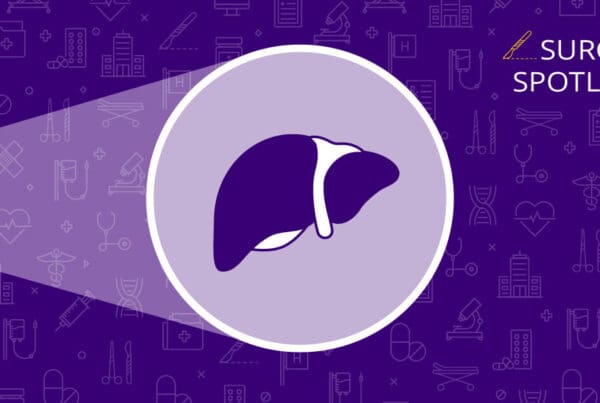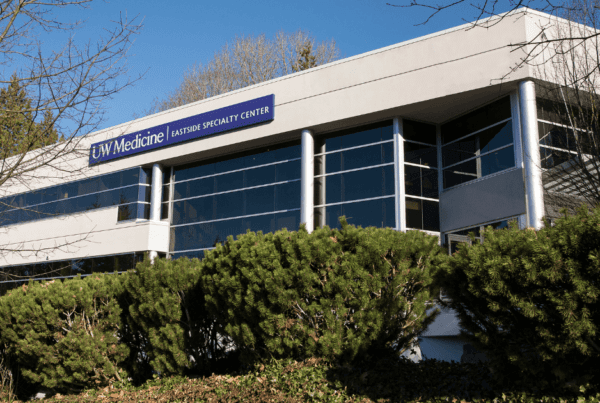Highlights | Serving HIV patients since 1985
- The Madison Clinic is one of the oldest in the country that cares for people with HIV.
- It helped King County become the first county to achieve UNAIDS’s 90-90-90 goal.
- It has expanded to include multiple clinic sites.
- It houses a federally funded research program, UW Positive Research.
In the decades since the HIV epidemic began in the United States in the early 1980s, much has changed for the better when it comes to HIV care and prevention. And through it all, the Madison Clinic has been a beacon of hope.
“Much has changed even since I joined the clinic as a trainee in 2003, as HIV treatments have become less burdensome and better tolerated. As such, our clinical focus has expanded to include HIV prevention and treatment of comorbidities associated with an aging population of people with HIV,” says Shireesha Dhanireddy, MD, director of the Madison Clinic. “We have also developed differentiated care delivery models to decrease barriers to care for individuals for whom the traditional clinic models have not been successful. As we look ahead, we will continue to provide comprehensive co-located services with the flexibility to meet patients where they are, such as in the community or via telemedicine services.”
Here are four things you might not know about the Madison Clinic that make it special.
It has long been a leader for the rest of the country
Founded in 1985 (initially with a different name), the Madison Clinic has always led the way in HIV care and prevention. It was one of the first HIV-specific clinics in the country and is still the largest in the Pacific Northwest region. And this legacy continues.
“Our work contributed to King County becoming the first county to meet the UNAIDS’s 90-90-90 goal: 90% of all people with HIV will know their HIV status, 90% of all people with diagnosed HIV infection will receive antiretroviral therapy, and 90% of all people receiving antiretroviral therapy will achieve viral suppression,” says Gwendolyn Barker, clinic manager.
It’s where new treatments are developed
Since 1986, the Madison Clinic has been home to the UW AIDS Clinical Trials Unit (ACTU) now called UW Positive Research, a research group focused on finding new, effective treatments for HIV and working toward a cure. The research is funded by the National Institutes of Health and also investigates other conditions that can co-occur in people with HIV, such as mpox and hepatitis C. The research program was even featured on VICE TV.
It isn’t just one clinic
The Madison Clinic at Harborview is only one of the clinic’s locations serving patients with HIV. Satellite locations are in Federal Way, Snohomish, Olympia and on the Kitsap peninsula.
The Aurora and SHE clinics, which serve people on Aurora Avenue who face barriers to accessing care, are also part of the Madison Clinic’s family and run by the same team.
In 2022, the team opened two new clinics, one in Federal Way and one in Kent, that are specifically designed to be low-barrier, meaning they’re accessible to people who would normally have difficulty going to the doctor.
“These clinics are funded by Seattle King County-Public Health and are co-located within a day center for those without housing. It’s really exciting to be able to provide a new service to a population that is extremely underserved,” Barker says.
It doesn’t just provide medications
First, let’s not underestimate how important medications are in HIV care. Until effective treatment started becoming available in the 1990s, most people diagnosed with HIV would die from it, and sooner rather than later. Antiretroviral therapy changed everything, helping people with HIV live long lives with undetectable viral loads, meaning they can’t spread the virus to partners. There are even medications to prevent HIV infection in people who are exposed to or at high risk of getting the virus.
But there are many other aspects of caring for people with HIV — such as addressing coexisting conditions and managing mental health — that matter and can affect someone differently when they have HIV.
This is why the Madison Clinic provides comprehensive services, including dermatology, cardiology, psychology and psychiatry, nutrition, social work, pharmacy services and more. All of these types of care are vital. There is already stigma associated with HIV, so seeing providers who specialize in caring for patients with HIV can help those patients feel more comfortable and confident.
“Madison’s team helps the thousands of people living with HIV in King County live longer and healthier lives. But we also help ensure a healthier community by slowing the rate of transmission of the virus,” Barker says.


